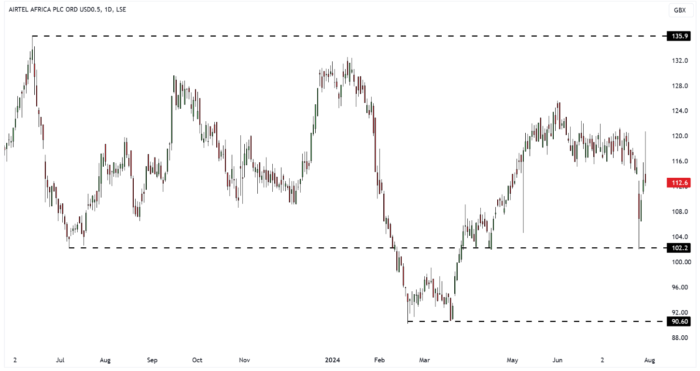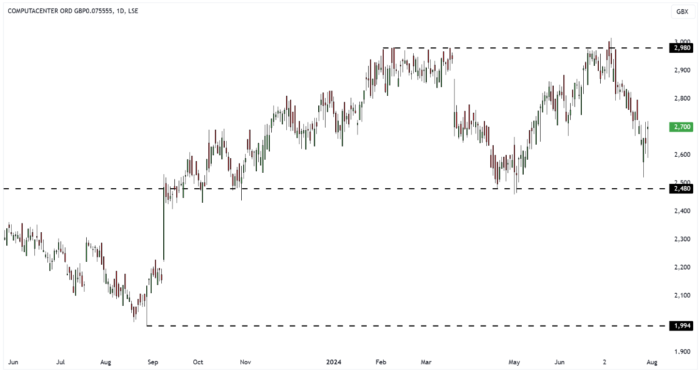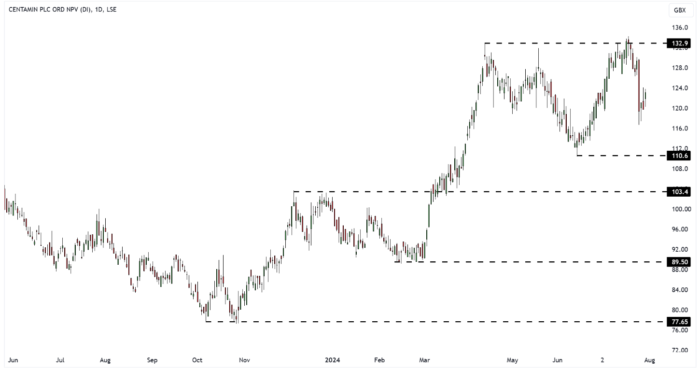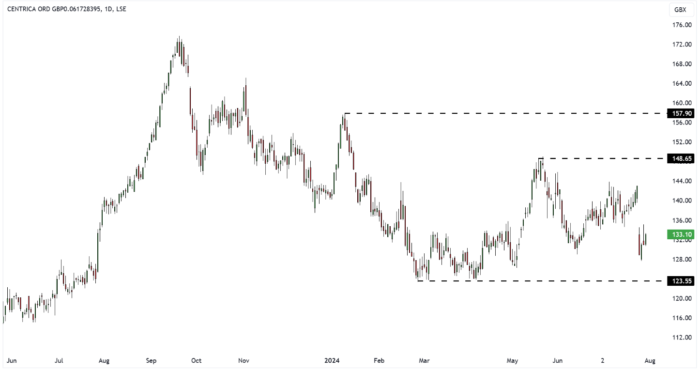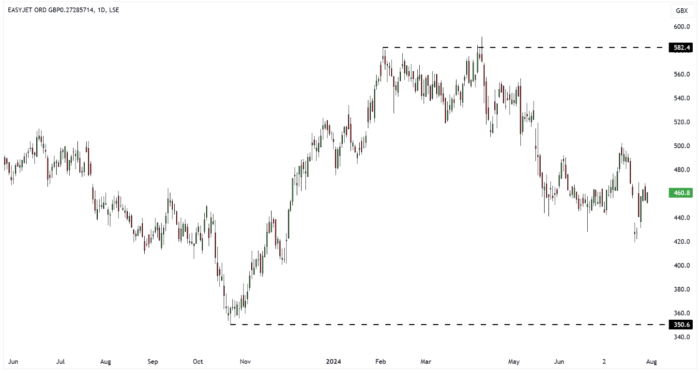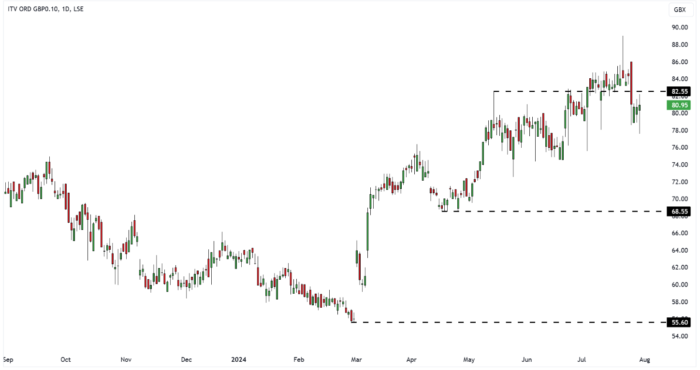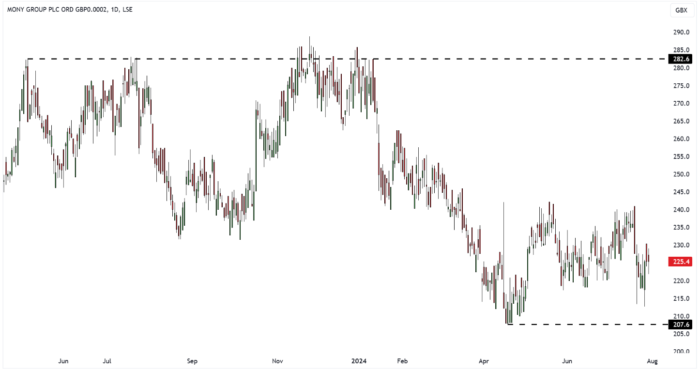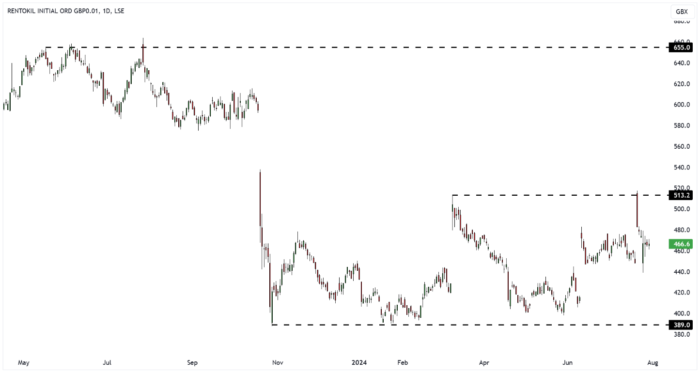31st Jul 2024. 9.01am

Regency View:
Update

Regency View:
Update
Airtel Africa reports strong Q1 growth despite currency challenges
Airtel Africa (AAF) reported a solid Q1 trading update which showed strong growth and operational efficiency despite facing significant macroeconomic challenges.
The company’s customer base expanded by 8.6%, reaching 155.4 million. Data customers saw a significant increase of 13.4%, amounting to 64.4 million, with each user consuming 25.1% more data, averaging 6.2 GB. Smartphone penetration also improved by 4.7%, now at 41.7%.
In the mobile money sector, Airtel Africa recorded a 14.9% growth in subscribers, reflecting the success of their ongoing investment in distribution networks aimed at enhancing financial inclusion across their markets.
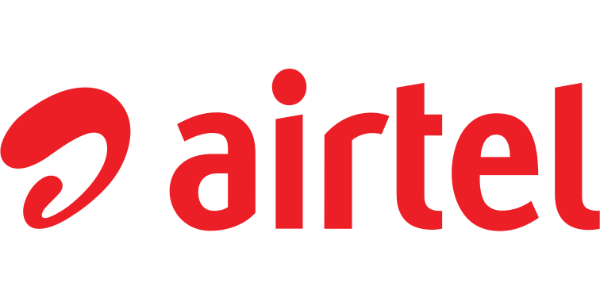
Revenue in constant currency terms grew by 19%, driven by 33.4% growth in Nigeria and 22.3% growth in East Africa. However, reported currency revenues declined by 16.1% to $1.15 billion due to currency devaluation impacts, especially in Nigeria. Mobile services revenue rose by 17.4%, and Mobile Money revenue saw a 28.4% increase in constant currency.
Profit after tax stood at $31 million, impacted by $80 million in exceptional derivative and foreign exchange losses, stemming from the further depreciation of the Nigerian naira. The impact of currency devaluation also led to a decline in EPS before exceptional items from 3.9 cents to 2.3 cents.
The market’s reaction to the update was mixed. Having initially moved lower following the publication of the update, the shares bounced back and have erased the losses.
Computacenter announces £200m share buyback
Computacenter (CCC) recently released a trading update which provided insights into its financial performance for the half-year ended 30 June 2024.
The update highlighted that Technology Sourcing volumes had “normalised” after an exceptionally strong first half of 2023. The company reported solid underlying performance in Germany and North America but noted weaker-than-expected demand for hardware in the UK. This slowdown in the UK was attributed to cautious customer behaviour and longer decision-making processes.

Despite these challenges, Computacenter saw a significant increase in its committed product order backlog, particularly driven by notable Technology Sourcing wins in North America. The company adjusted its expectations for H1 2024, projecting an adjusted profit before tax of approximately £87 million, down from £121.8 million in the same period last year. This decrease includes about £2 million in negative currency translation effects.
The decline in profit was influenced by the timing of large order fulfilments in North America, which are now expected to contribute to the second half of the year. Additionally, the company increased its investment in strategic initiatives by around £6 million compared to the previous year, with full-year investment expectations remaining between £28 million and £30 million.
Looking forward, Computacenter expects stronger performance in the latter half of the year, supported by its growing backlog and pipeline of opportunities. The company remains cautious due to ongoing geopolitical and macroeconomic uncertainties but anticipates progress in FY 2024.
In addition to the trading update, Computacenter announced a significant share buyback program, returning up to £200 million to shareholders. This move aligns with the company’s capital allocation strategy, which includes investing in organic growth, pursuing targeted acquisitions, and distributing surplus capital while maintaining a strong balance sheet.
Centamin falls despite strong first half
Centamin’s (CEY) share price moved lower last week despite the company releasing an in-line trading update for the first half of 2024.
The interim report indicated that Centamin has leveraged stronger gold prices to achieve improved EBITDA and a significant increase in free cash flow. CEO Martin Horgan highlighted that the upcoming grid connection project is expected to build on the recent cost reductions, with commissioning planned for the first half of 2025. The company is also progressing with organic growth initiatives, including advancing the Doropo Gold Project and drilling at the Eastern Desert Exploration project.
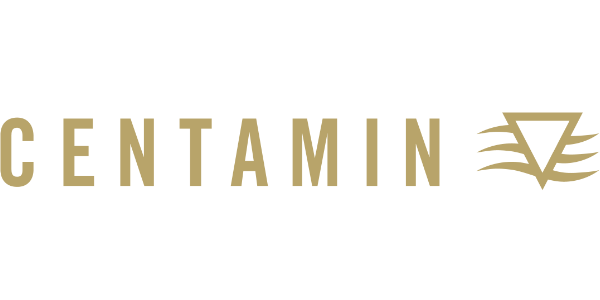
During H1 2024, Centamin produced 224,738 ounces of gold, a 2% increase year-on-year, and sold 209,269 ounces. Cash costs were $977 per ounce produced, and All-in Sustaining Costs (AISC) were $1,382 per ounce sold. Capital expenditure totalled $89.5 million, focusing on various infrastructure improvements and fleet purchases. The Group’s free cash flow surged to $42.7 million, marking a 121% increase from the previous year.
The Doropo Gold Project’s definitive feasibility study (DFS) was completed with a post-tax net present value of $426 million and an internal rate of return of 34%. The company maintained a strong balance sheet with cash and liquid assets of $200 million and total liquidity of $350 million. An interim dividend of 2.25 US cents per share was declared, surpassing the minimum policy requirement.
For the full year, Centamin expects gold production to be between 470,000 and 500,000 ounces, with costs and capital expenditures aligned with previous guidance. Key upcoming deliverables include completing the grid connection project, final investment decisions for Doropo, and ongoing drilling updates for the Eastern Desert Exploration project.
Centrica’s share buyback disappoints
Centrica (CNA) interim results received a muted reaction from the market as its share buyback extension fell short of expectations…
Last week, Centrica revealed plans to add approximately £200 million to its existing £1 billion buyback program that commenced in November 2022. Analysts had anticipated a more substantial increase, with expectations set around £300 million.
In addition to the buyback news, Centrica announced an interim dividend of 1.5p per share, surpassing the previous year’s 1.33p. However, this dividend increase did little to offset the disappointment over the buyback amount.
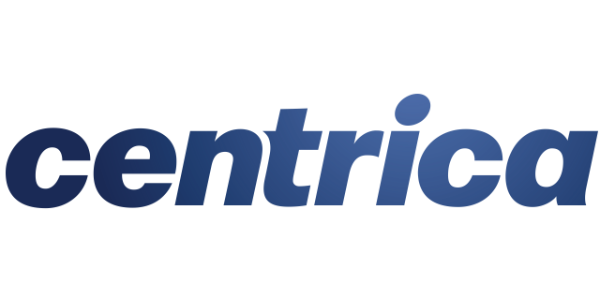
The company’s interim results for the first half of 2024 showed adjusted operating profits of £1 billion, down from £2 billion in the same period last year. The previous year’s figures were elevated due to the energy crisis, which saw soaring wholesale gas and electricity prices. With market conditions now normalised, Centrica’s performance was in line with expectations, but the decline in profits highlighted the challenges the company faces.
Centrica’s green energy investment strategy is also experiencing hurdles. The company has committed to investing £600 million to £800 million annually in renewable energy projects until 2028. Despite this ambitious plan, investment progress has been slower than hoped due to a challenging investment environment, marked by rising interest rates and fluctuating power prices. Some projects were rejected for failing to meet return expectations.
The shares gapped lower following the announcement, but prices have since stabilised and key support remains at 123p.
easyJet delivers strong Q3 profit amid rising passenger demand
easyJet (EZJ) reported a significant profit improvement for the quarter ending June 30, 2024, with a 16% year-on-year increase in headline profit before tax, reaching £236 million. This positive performance was driven by an 8% rise in passenger numbers and a 1% increase in revenue per seat (RPS), aligning with the company’s guidance.
Revenue for the quarter grew by 11% to £2.63 billion, thanks to higher passenger volumes and robust performance in ancillary services. EasyJet holidays contributed notably with a profit before tax of £73 million, up 49% from the previous year. The airline’s cost management also showed improvements, with headline cost per seat excluding fuel remaining flat year-on-year, and total cost per seat reduced by 1%.
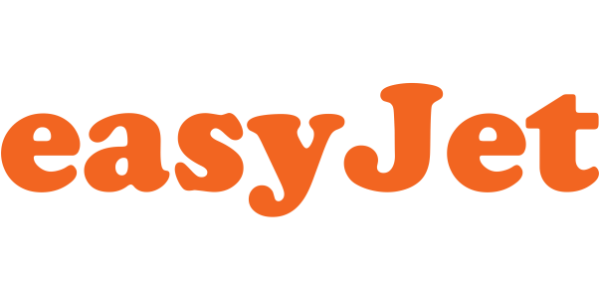
Looking ahead, easyJet forecasts continued growth, expecting a full-year capacity of around 100 million seats. The company anticipates that revenue per seat in the fourth quarter will follow the positive trend observed in Q3. For the holiday segment, easyJet now expects to achieve over £180 million in profit before tax, reflecting more than 48% growth from the previous year.
The company ended Q3 with a strong net cash position of £456 million, a significant increase from £146 million at the end of March 2024. Bookings for the fourth quarter are progressing well, with 69% of seats already sold, up 1 percentage point from the previous year, and total capacity up 7%.
CEO Johan Lundgren highlighted the company’s strong performance despite the challenging conditions, emphasizing easyJet’s solid position as it moves towards its medium-term targets. The airline continues to manage costs effectively while expanding its operations and maintaining a strong financial position.
ITV expects to deliver record full year profits
ITV (ITV) has released its interim results for the first half of 2024, showing an increase in profitability despite a slight decline in revenue…
The media group saw adjusted earnings surge by 40%, reaching £213 million, up from £152 million in the first half of 2023. This significant improvement came even as group external revenue fell by 2%, primarily due to a 13% drop in ITV Studios revenue. The decline in Studios revenue was expected, stemming from production phasing and the impact of the 2023 US writers’ and actors’ strikes.
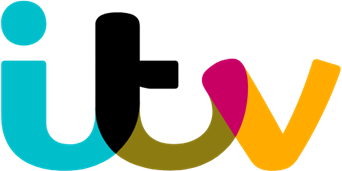
The Media & Entertainment (M&E) segment showed a substantial improvement, with adjusted EBITA growing by 230%. Total advertising revenue exceeded expectations, increasing by 10%. Digital advertising revenues within this segment also performed well, rising by 17%. ITVX, the company’s streaming service, continued to gain traction, with streaming hours up 15% and monthly active users increasing by 17%.
Despite the challenges faced by ITV Studios, the company expects to deliver record profits for the full year, although the revenue impact of the US strikes will shift approximately £80 million of revenue from 2024 to 2025. ITV Studios remains on track to achieve its target of 5% average annual organic revenue growth from 2021 to 2026, with margins between 13% and 15%.
ITV’s balance sheet remains robust, with net debt reduced to £515 million and a net debt to adjusted EBITDA leverage of 0.9x. The company completed £53 million of share buybacks by the end of June 2024, as part of a £235 million programme to return net proceeds from the sale of BritBox International.
Looking ahead, ITV expects ITVX to continue its strong performance in the second half of the year, with further improvements in content, product, distribution, marketing, and monetisation. Total advertising revenue is anticipated to remain robust, although Q3 revenue is expected to be flat compared to the previous year due to the absence of events like the Rugby World Cup.
The company has also proposed an interim dividend of 1.7p, to be paid in November 2024, and plans to maintain a full-year ordinary dividend of at least 5.0p, with expectations of growth over the medium term.
MONY Group reports best-ever first-half results
The MONY Group (MONY), formerly known as Moneysupermarket.com Group, reported its best-ever first-half results, with revenues reaching £223.5 million, driven by strong performances in the insurance and cashback categories.
Insurance sales grew by 14% to £119.9 million, balancing declines in the money and home services sectors. EBITDA rose by 8% to £73 million, and adjusted earnings per share increased by 6% to 8.8p. Net debt was reduced to £25.1 million from £54.4 million, and operating cash flow surged by 26% to £51.8 million.
CEO Peter Duffy highlighted that the company saved customers £1.7 billion in the first half of 2024. The SuperSaveClub membership grew from 300,000 to over 500,000 members, increasing product offerings from six to ten. Early data indicates that club members are 20% more likely to make repeat purchases directly compared to traditional users.
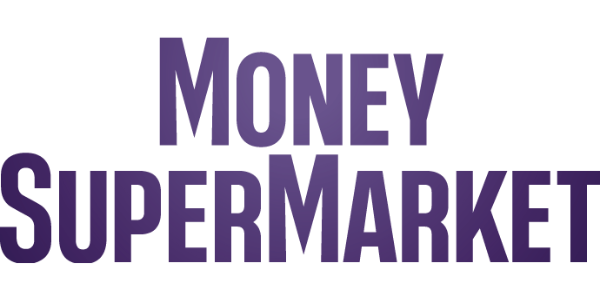
Despite this success, the company maintained its full-year guidance, expecting insurance operations to normalise and no significant revenue from energy switching – causing the shares to fall slightly following the release of the trading statement.
Rollercoaster week for Rentokil
Last week was a rollercoaster ride for Rentokil (RTO) as buyout rumours and interim results caused an increase in volatility.
Rentokil’s share price was driven higher by reports that Phillip Jansen, the former CEO of BT, was in advanced talks with private equity firms about a potential buyout of the British pest control and hygiene firm.
The prospect of Jansen taking the helm as executive chairman ignited considerable excitement among investors, leading to a 14.4% jump in the company’s stock price, the highest it has been since October 2023.
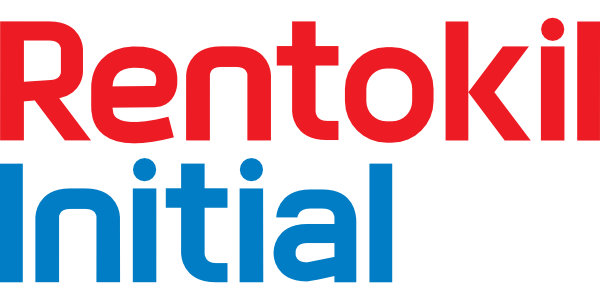
However, the enthusiasm was tempered by the company’s interim results, which were released later in the week. Although Rentokil showed some progress in North America, a key region for the company, the results revealed that growth was slower than anticipated. Revenue for the first half of 2024 rose by 1.3% to £2.7 billion, or 4% when excluding currency fluctuations, with organic growth at 2.8%. North America’s growth, which had been a focal point for investors due to past profit warnings, increased by just 1.0%, down from 1.5% in the first quarter.
The company’s profit before tax also saw modest growth, increasing by 1.8% to £383 million, or 6.1% when adjusted for currency effects. Despite these improvements, the firm’s updated guidance for the full year indicated that organic revenue growth in North America would likely be at the lower end of the 2-4% range previously forecasted.
Disclaimer:
All content is provided for general information only and should not be construed as any form of advice or personal recommendation. The provision of this content is not regulated by the Financial Conduct Authority.

